Postlberger emerges from neutralisation confusion to take 4th at Dwars door Vlaanderen
'They weren't able to organise the restart properly'
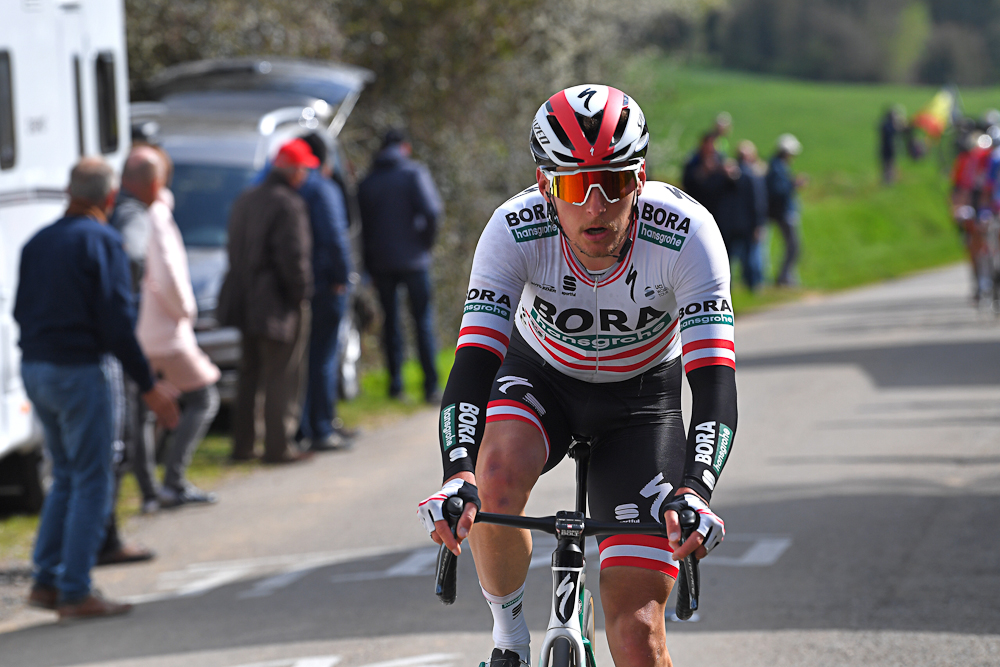
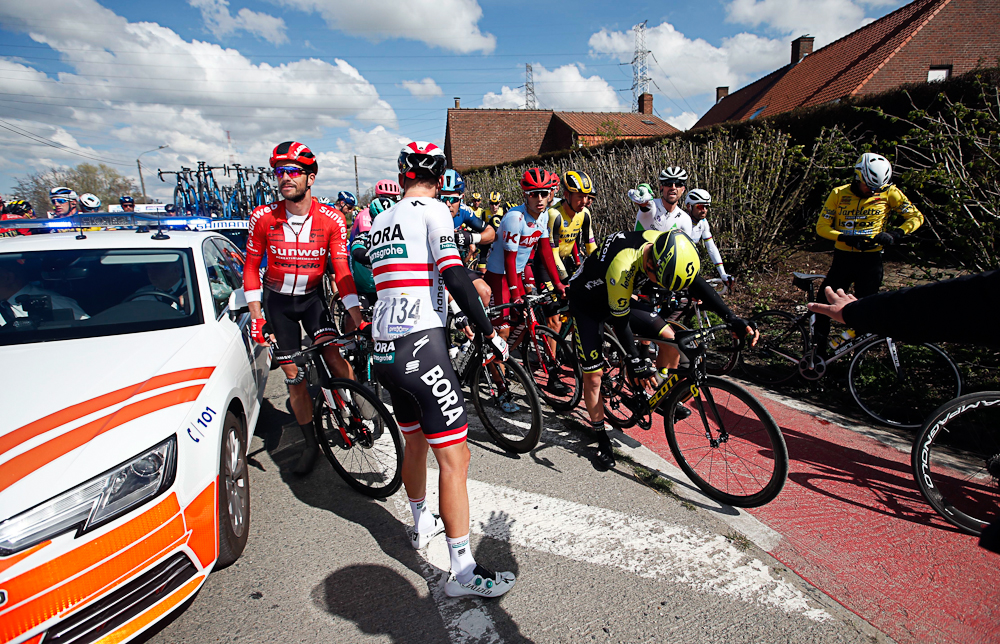
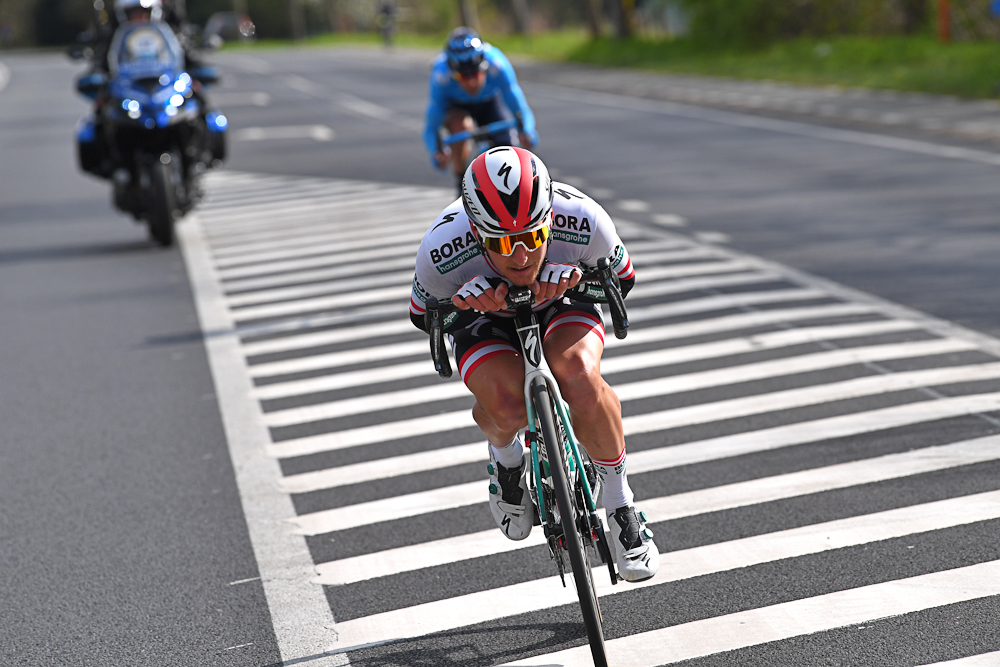
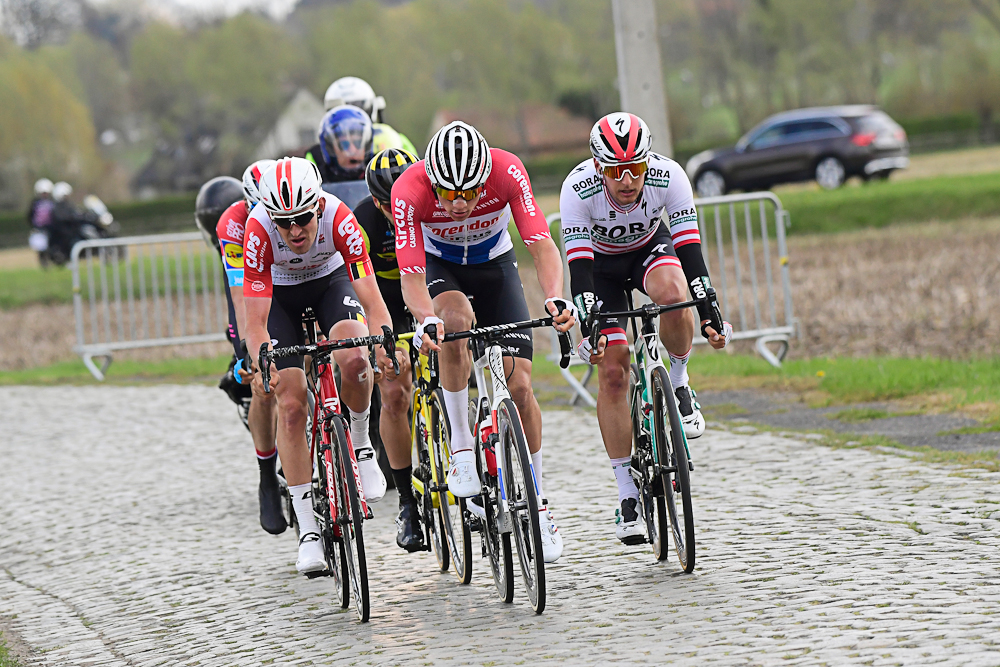
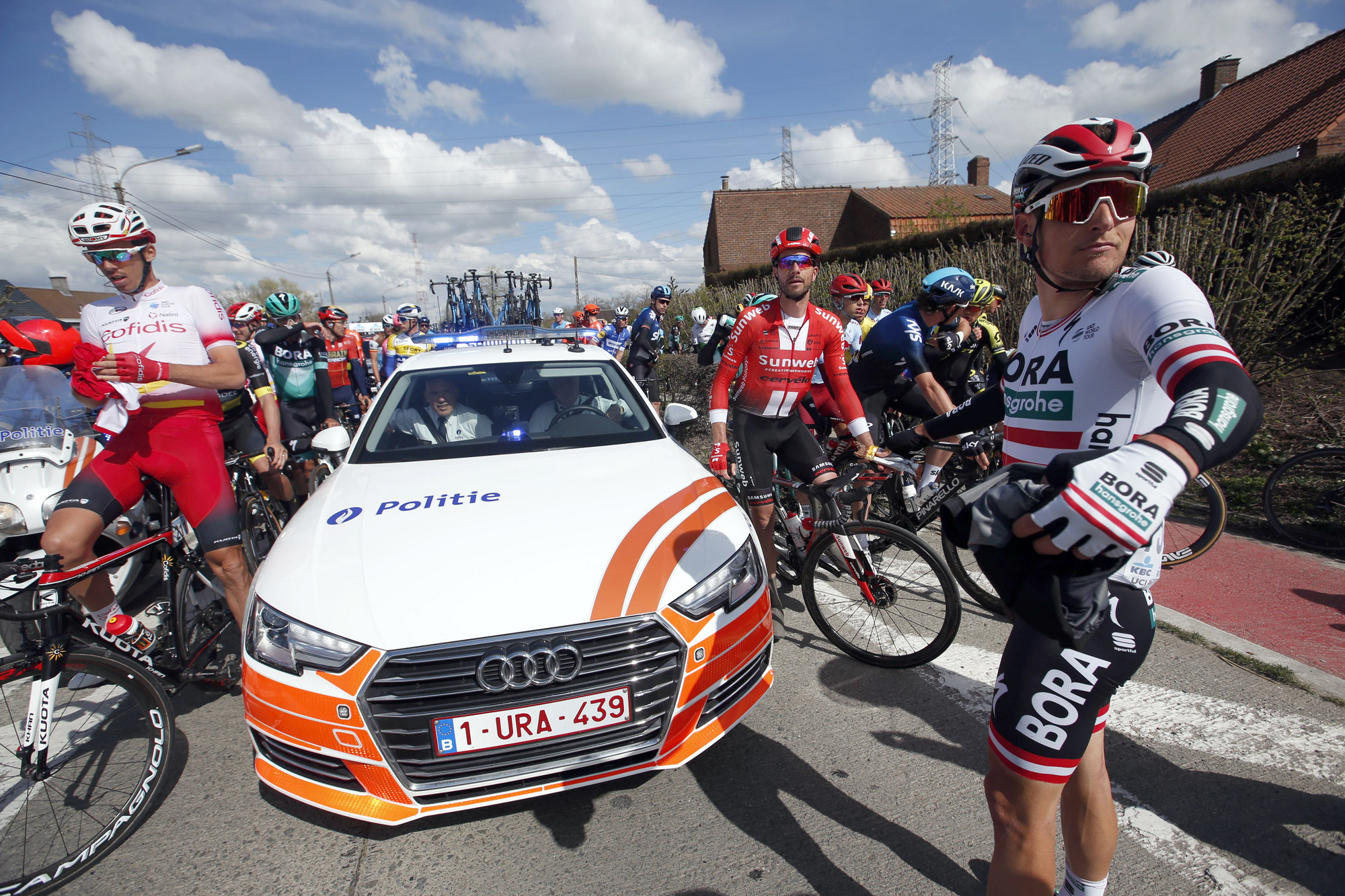
By the time Lukas Pöstlberger (Bora-Hansgrohe) beat a path through the confused Dwars door Vlaanderen peloton, which had stopped for a second time somewhere near the base of the Knokteberg following a neutralisation, he found his erstwhile breakaway companions had already re-started without him. A bizarre problem required a creative solution.
Destiny steps in to give Postlberger his moment of Giro d'Italia glory
Dwars door Vlaanderen: Van der Poel wins first WorldTour race
Organisers prioritise safety in neutralising men's Dwars door Vlaanderen
Jungels: Dwars door Vlaanderen was a complicated race
Instinct delivers Van der Poel to victory in Dwars door Vlaanderen
Pöstlberger had been part of the early escape at Dwars door Vlaanderen, but his group was flagged to a halt near Avelgem with 76 kilometres remaining so that an ambulance could drive past and attend to a crash in the women’s event. The main peloton was soon upon them, and all the riders were back together when they tentatively set off once again. Frantically, the commissaires sought to bring some order to proceedings, flagging the bunch to a halt once again to allow the break to go clear and restore their advantage of 2:15.
The Austrian champion, however, was not among their number, and after angrily remonstrating with a commissaire about the oversight, Pöstlberger sought a more practical way to resolve the issue, negotiating a tow back to the front from the motorbike of Sporza's in-race reporter Renaat Schotte. In return, Schotte received an impromptu interview.
"What to say, it's a tricky situation here, but we do our best," Pöstlberger said as he clung on. "Thank you very much guys."
Pöstlberger contributed a whole lot more than that cameo to this edition of Dwars door Vlaanderen, of course. The Bora-Hansgrohe rider went on to be the lone survivor of the day’s early break, which fragmented in the Flemish Ardennes, and he reached the finish in Waregem as part of the five-man leading group that contested the victory, though he had to settle for fourth place in a sprint won by Mathieu van der Poel (Corendon-Circus).
After Pöstlberger wheeled to a halt past the finish line, however, the first questions related to his part in the muddle that followed the race’s neutralisation. While the Austrian fully accepted the rationale behind the initial stoppage, he was bemused by the way the race then re-started without him.
"An ambulance was passing and that stopped us. On the radio they told us there was a crash in the women's race and they had to pass in an emergency," Pöstlberger said. "After that, I don't know what happened. They said they were going to give us [the break] two and a half minutes. But we were in the peloton because they caught up to us, and they weren’t able to organise the restart properly.
Get The Leadout Newsletter
The latest race content, interviews, features, reviews and expert buying guides, direct to your inbox!
"It's Belgium and everybody’s going crazy about the positioning. If you stop the race at the most important point in the race, it's kind of difficult. I got on the motorbike because I should have been in the break and they weren't waiting for me. I mean, if the race commissaire is not able to put all the race numbers back in the correct order at the front, then…"
Taking on Van der Poel
The eight-man break splintered on the succession of hills that followed, with Pöstlberger and Nelson Oliveira (Movistar) emerging as the strongmen of the group. The Austrian found himself alone at the head of the race when Oliveira punctured with 29 kilometres remaining, however, and he was eventually joined by counter-attackers Van der Poel, Bob Jungels (Deceuninck-QuickStep), Anthony Turgis (Direct Energie) and Tiesj Benoot (Lotto Soudal).
"This was a problem," Pöstlberger said of Oliveira's puncture. "I was counting on him. He looked pretty strong when I chased him, but then he had a mechanical problem and I was on my own, so I had to wait for Jungels and the other guys."
In the absence of Peter Sagan, rested with an eye to Sunday's Tour of Flanders, Pöstlberger entered this race with considerable personal motivation. "I knew I had the possibility to race for myself because Peter was not there today," he explained, and his ambition was not dimmed by the quality of riders who joined him at the front in the closing kilometres.
"I should have gone for an attack in the final, but I was tired. The guys coming from the back had pretty good legs, so I was not sure how to act. In the end, fourth place is ok, but I wanted to win today."
Van der Poel’s sparkling WorldTour debut at Gent-Wevelgem had already led to speculation about what he might achieve in his maiden Tour of Flanders this weekend, and the cyclo-cross world champion will shoulder even greater expectation after this victory. Pöstlberger demurred, however, when asked if the strongest rider had won.
"No," Pöstlberger said. "The smartest won."
The follow-up question asked itself.
"I felt pretty good," Pöstlberger said. "I don’t want to say I was the strongest but being in the break and then making it to the finish with the first guys, I think that’s a good performance."
Even so, Pöstlberger was generous in his praise of Van der Poel’s acceleration in the finishing straight. "He’s been in some sprints. He knows how to time it. He’s a strong fella," he said, though he was careful to stop short of agreeing that the Dutchman was the favourite for the Ronde.
"Ah, for me Peter is the favourite for the Tour of Flanders. He's doing proper preparation now and he’s going to fight for the win on Sunday."

Barry Ryan was Head of Features at Cyclingnews. He has covered professional cycling since 2010, reporting from the Tour de France, Giro d’Italia and events from Argentina to Japan. His writing has appeared in The Independent, Procycling and Cycling Plus. He is the author of The Ascent: Sean Kelly, Stephen Roche and the Rise of Irish Cycling’s Golden Generation, published by Gill Books.